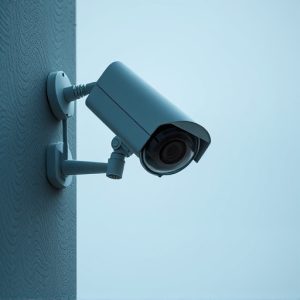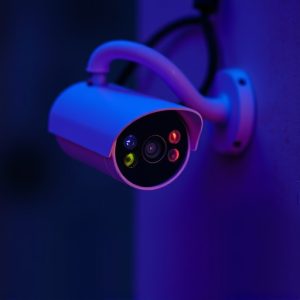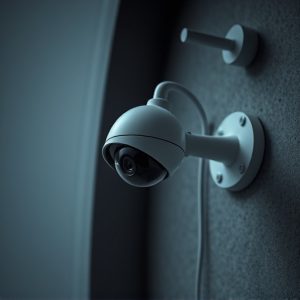Maximizing Home Safety with Hidden Security Cameras: A Comprehensive Guide
Hidden security cameras enhance residential security by offering undetectable surveillance that dete…….
Hidden security cameras enhance residential security by offering undetectable surveillance that deters intruders and provides homeowners with peace of mind. These cameras are designed to blend into environments, either mimicking everyday objects or being concealed within fixtures. They provide covert monitoring capabilities, capturing high-resolution footage that's essential for identifying suspicious activity, and allow for remote live feed access via smartphones or computers. These cameras can cover areas missed by traditional ones, ensuring comprehensive surveillance. Beyond theft prevention, they also act as safeguards against fires, floods, and other environmental hazards with continuous recording and early warning systems. The high-quality video footage they produce is instrumental in resolving incidents and obtaining justice. Hidden security cameras are now equipped with advanced features like high-definition resolution, motion detection sensors, night vision, and audio recording technology, all of which contribute to a robust home security strategy. However, their deployment must be done within legal and ethical boundaries set by privacy laws, such as the Federal Wiretap Act, and with consideration for the privacy rights of individuals within the home. It's essential to install these cameras in plain sight and ensure that their use is transparent and lawful, striking a balance between security and respect for privacy. Homeowners should consult legal advice or review local regulations before installation to comply with privacy laws and ethical standards.
When safeguarding your home, hidden security cameras offer a discreet yet vigilant eye. This article delves into their pivotal role in enhancing home safety, exploring the technical intricacies of installation and optimal placement to ensure comprehensive surveillance. Beyond the practical aspects, it’s crucial to navigate the legal landscape and uphold ethical standards when employing such technology within your living spaces. Understanding these dimensions will empower you to make informed decisions about integrating hidden security cameras into your home security strategy.
Unveiling the Utility of Hidden Security Cameras in Home Safety
Hidden security cameras play a pivotal role in enhancing the safety and security of residential properties. Their discreet nature allows for comprehensive surveillance without overtly marking areas with visible cameras, which can deter potential intruders while providing homeowners with peace of mind. These devices are engineered to blend seamlessly into their surroundings, whether they’re camouflaged as everyday household items or ingeniously integrated into common fixtures. The advantage of using hidden security cameras is twofold: they offer covert monitoring and can capture high-quality footage that aids in identifying suspicious activities or individuals. With advanced technology, these cameras can be remotely accessed through smartphones or computers, enabling homeowners to monitor their premises in real-time from anywhere. The strategic placement of hidden security cameras can cover blind spots that traditional cameras might miss, ensuring that every corner of the home is under watchful eyes, thus significantly bolstering home safety.
Furthermore, the effectiveness of hidden security cameras extends beyond deterring theft or burglary. They are equally valuable for safeguarding against other threats, such as fire hazards or environmental dangers like flooding, by continuously recording and alerting homeowners to potential risks. The footage from these cameras can be critical evidence in the event of a break-in or any untoward incident, potentially leading to quicker resolutions and justice. Investing in high-quality hidden security cameras is a proactive measure that complements other home safety strategies, offering a comprehensive approach to safeguarding one’s living space and treasured belongings.
The Technical Aspects and Placement Strategies for Effective Surveillance
Hidden security cameras have become an indispensable tool for homeowners seeking to enhance their safety and security. From a technical standpoint, these devices are engineered with high-definition resolution capabilities, motion detection sensors, and wireless connectivity that allows for real-time monitoring from anywhere at any time. The latest models often come equipped with night vision to ensure continuous surveillance regardless of lighting conditions. Additionally, advancements in audio recording technology enable these cameras to capture clear sound, providing a comprehensive security solution.
When it comes to placement strategies for effective surveillance, the key is to consider the areas most critical to monitor within your home. Commonly, entry points such as doors and windows are prime locations for hidden cameras, as they can deter intruders and record any suspicious activity. Other strategic positions include hallways, corners of rooms, and areas near valuable possessions or sensitive information. It’s advisable to place cameras at heights where they are not easily accessible yet have a clear view of the intended space. Furthermore, integrating these cameras with a central monitoring system, like a home security hub or smartphone app, can provide homeowners with immediate alerts and live feeds, enhancing both the responsiveness and effectiveness of the surveillance setup.
Legal Considerations and Ethical Use of Hidden Security Cameras at Home
Hidden security cameras serve a critical role in safeguarding one’s home and belongings, providing property owners with peace of mind. However, their deployment necessitates careful consideration of both legal and ethical implications. Legally, it’s imperative to understand that the use of hidden cameras is subject to privacy laws which vary by jurisdiction. In the United States, for example, the Federal Wiretap Act and state laws often dictate when it’s lawful to record someone without their knowledge. Homeowners must ensure they are not infringing on individuals’ privacy rights, including those of guests, tenants, or family members. Ethically, the use of hidden cameras should be justified by a clear intention to protect against theft, damage, or harm; mere curiosity or spousal distrust typically do not constitute ethically sound reasons for their covert installation. Privacy experts advise that any surveillance system should be transparent about its presence to those who have a reasonable expectation of privacy within the home. By adhering to these legal and ethical boundaries, homeowners can responsibly utilize hidden security cameras to enhance home safety while respecting the rights of others. It’s advisable to consult with legal counsel or refer to local laws before installing such devices to avoid potential legal repercussions.


